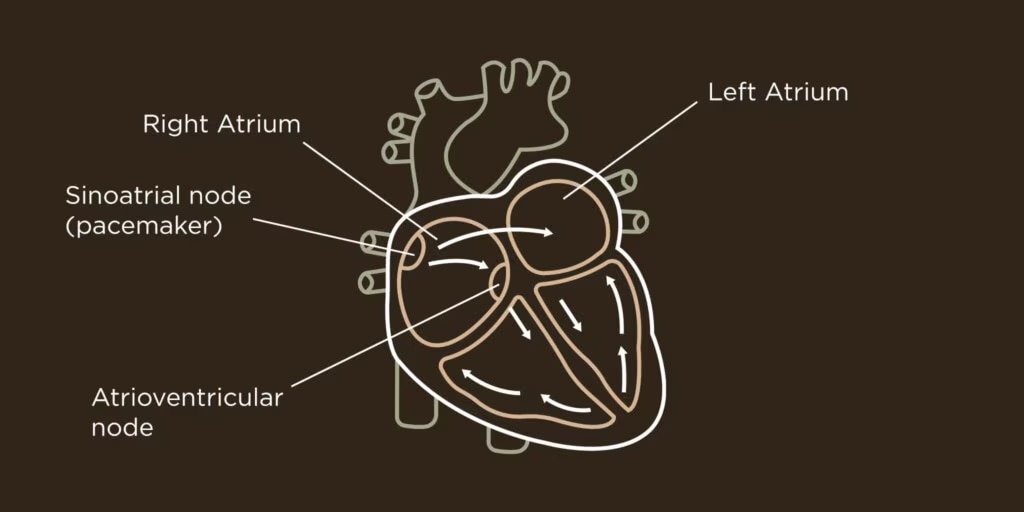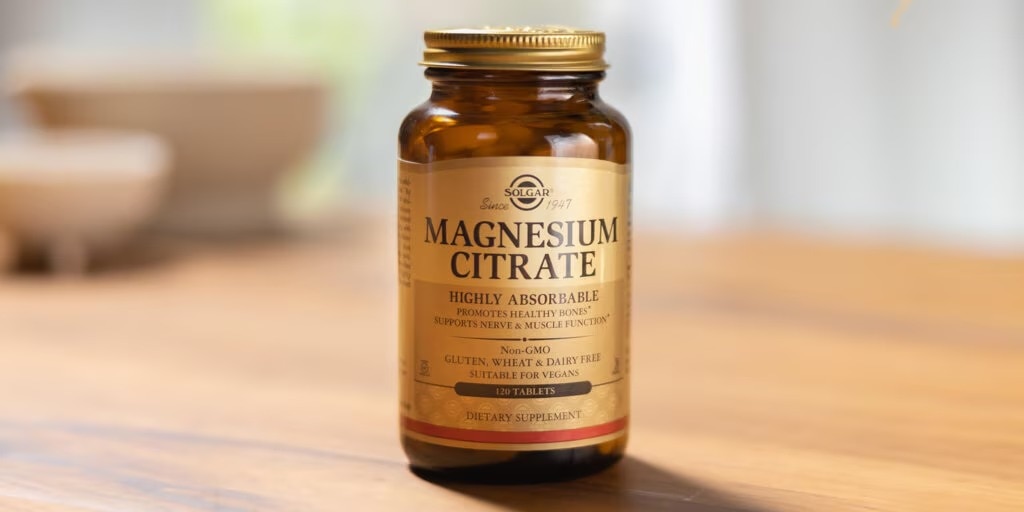Does Magnesium Support Heart Health?

Key Takeaways:
- As an electrolyte, magnesium plays a role in regulating heart rate.
- Magnesium helps support heart health, and is available in supplement form or in certain foods.*
Magnesium is important for many of the tasks your body performs each day — from helping to manage occasional stress to supporting bone health.* But does magnesium support heart health? And can it support a healthy heart rate? Let’s take a closer look at the role magnesium plays in heart health, and which magnesium supplement may be right for you.
What is magnesium and why is it so important?
Magnesium is the fourth most abundant mineral found in the body, and plays a role in more than 300 enzyme systems. 1 2 It is one of seven essential minerals that the body needs to function optimally, and is necessary for energy production, muscle contraction, nerve transmission, blood sugar balancing, and more.*
Magnesium also plays a role in supporting heart health.*3 Let’s take a closer look at exactly how it does that.
Does magnesium help maintain your normal heart rate?
Magnesium is an electrolyte, along with other minerals like calcium, potassium, and sodium. Electrolytes play a big role in nerve and muscle function within your body. They help generate and send electrical signals, called action potentials, which allow our nerves to send messages and our muscles to move.
Because your heart is a muscle, having the right balance of electrolytes in your body is an important part of making sure signals are sent to your heart about how fast or slow it should beat.4
Note: Be sure to contact your healthcare provider if you have concerns about your heart health, or are making changes to your supplement routine.
To understand exactly how magnesium affects your heart rate, you need to know how your heartbeat works.
How does magnesium support heart health?
Your heart is a powerful pump that keeps your blood moving through your body. The sinus node sends electrical signals that travel to the top chambers of the heart first, and then the bottom chambers.
Before the signal reaches the bottom chambers (ventricles) it must pass a cluster of cells called the atrioventricular (AV) node. Think of the AV node as a traffic cop: it helps to slow the signal to make sure the lower chambers (ventricles) are ready.
You could also think of the AV node as a conductor of an orchestra, making sure each section of the heart plays its part at the right time to keep your blood flowing smoothly.
Magnesium plays a role in the proper timing of the AV node. Too much magnesium, and your heart may beat more slowly. Too little magnesium, and your heart rate may speed up.5

Which magnesium is best for heart health?
At Solgar®, we offer a range of magnesium supplements that help support cardiovascular health.*
Let’s take a look at a few of our favorites:

Magnesium Citrate Tablets
This formula offers highly-absorbable magnesium that helps:
- Support heart health*
- Alleviate occasional anxiety & stress*
- Maintain proper nerve and muscle function*
- Support bone health*
- Maintain cellular energy levels*
And, it’s non-GMO, vegan, gluten-free, dairy-free, and kosher.

Chelated Magnesium Tablets
Solgar® Chelated Magnesium helps support:
- Heart health*
- Nerve & muscle function*
- Healthy bones*
- Release of cellular energy*
It is also non-GMO, vegan, gluten-free, dairy-free, and kosher.

Magnesium with Vitamin B6 Tablets
This formula offers the benefits of magnesium, plus vitamin B6 for nervous system health and energy metabolism.*
Each serving helps…
- Support heart, skeletal, muscular, and nervous system health*
- Alleviate occasional anxiety & stress*
- Support a calm, relaxed mood*
- Alleviate infrequent muscle spasms, leg cramps*†
- Maintain proper bone health*
It is also non-GMO, vegan, gluten-free, dairy-free, and kosher.
What is the best time of day to take magnesium?
Magnesium can be taken any time of the day. Some people may prefer to take it before bed, while others may prefer to take it in the morning. Taking it consistently is more important than the specific time you take it. Always remember to follow the instructions on the label when taking a magnesium supplement.
Which foods have magnesium?
Dark, leafy greens are one of the best sources of magnesium. This is because plants need magnesium in order to grow. In fact, magnesium is a central component of chlorophyll, the molecule responsible for photosynthesis and what makes leafy greens so green.
Foods rich in magnesium:6
Legumes: black beans, edamame
Leafy greens: spinach, kale
Whole grains: oatmeal, whole wheat
Nuts & seeds: peanuts, almonds, cashews, pumpkin seeds, chia seeds
Others: dark chocolate, avocados
Get the latest updates and exclusive deals when you sign up for our newsletter!
Summing it up
Magnesium plays an important role in heart health, and may help to maintain a regular heartbeat.* Solgar® offers a range of magnesium supplements designed to support heart and cardiovascular health.* Remember, it’s always wise to consult with a healthcare professional before making changes to your supplement regimen. And be sure to follow us on Instagram for more easy health tips!
*These statements have not been evaluated by the Food and Drug Administration. These products are not intended to diagnose, treat, cure or prevent any disease.
†According to the National Institutes of Health, magnesium intake by most American adults is lower than recommended. Adequate magnesium intake is needed to support the contraction and relaxation of muscles and help with leg cramps.** Leg cramps can occur occasionally among adults with inadequate intake.**
The information provided on this site is intended for your general knowledge only and is not a substitute for professional medical advice or treatment for specific medical conditions. Always seek the advice of your physician or other qualified healthcare provider with any questions you may have regarding a medical condition. The information on this website is not intended to diagnose, treat, cure or prevent any disease. Never disregard medical advice or delay in seeking it because of something you have read on the Solgar® site.